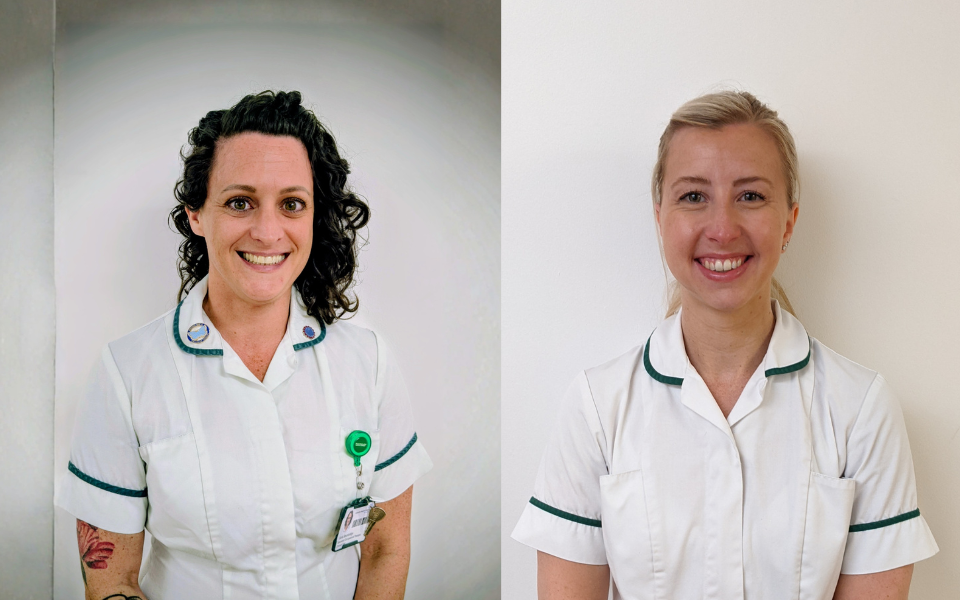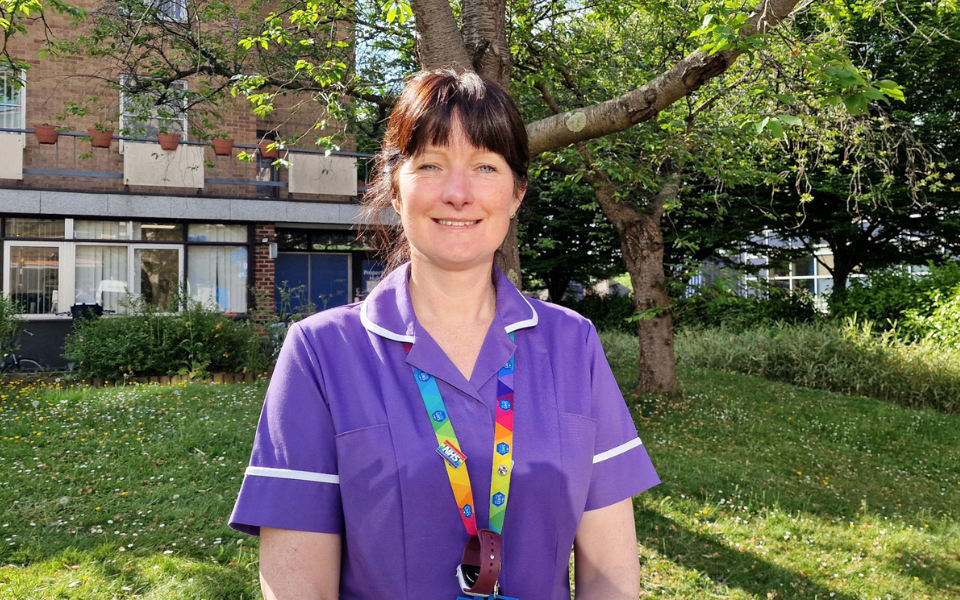
Allied health | Career Development and Education
Career Without Limits: Breaking the Boundaries of Traditional Roles
For many, a career in healthcare is a lifelong calling. For Katie, it was a journey of discovery—one that took her from studying human biology with no clear career path to leading outpatient services at one of the UK’s largest hospitals.
Starting out as a Healthcare Support Worker (HCSW), she quickly realised that working in a hospital environment gave her purpose. A chance encounter with a physiotherapist set her on a new path. But when the role she loved began to change, Katie took a leap into something completely different.
Now a Trust Outpatient Matron at University Hospital Southampton (UHS), she is breaking stereotypes, proving that the Matron role isn’t just for nurses, and reshaping the way patients experience care. Her story is one of growth, resilience, and embracing the unexpected, a journey that shows there’s no single path to making a difference in the NHS.
Taking the First Steps in Healthcare
Katie’s journey into healthcare wasn’t planned from the start. She had always enjoyed human biology, but when she completed her degree, she had no clear direction for what came next. Looking for experience, she took a job as a Healthcare Support Worker in Glasgow, working across different wards and gaining insight into the world of patient care. She began to realise how much she enjoyed being part of patient care.
It was in this role that she saw the variety of careers available in healthcare. At first, she considered medicine, but it never quite felt like the right fit. It wasn’t until she worked closely with a physiotherapist that something clicked. “I was considering medicine, and then I worked with a really good physio. One night, I actually woke up and nudged my partner and said, ‘I’m going to be a physio.’ That was it. I just knew.”
Determined to follow this path, she began researching universities, ultimately choosing Southampton for its strong physiotherapy programme. The move was a bold one, packing up her life, relocating to a new city, and starting over. But it was also the start of a career that would take her further than she ever expected.
Building a Career in Physiotherapy
After completing her degree, Katie secured a highly sought-after junior physiotherapy role at UHS, where she embraced the variety of rotations available in a large acute trust. While she originally thought she would go into musculoskeletal care, she quickly found herself drawn to cystic fibrosis.
“I didn’t think I liked respiratory care, but cystic fibrosis was so much more than that. It was holistic, you weren’t just treating a condition, you were looking at the whole person.”
Working in this specialist field gave her the chance to build long-term relationships with patients, seeing them grow from teenagers into adults, supporting them through key life moments, and tailoring care to their evolving needs.
She stayed in the service for over a decade, becoming a team leader and a trusted part of patients’ lives. But over time, changes in treatment meant her role shifted. Many patients began to require less acute intervention, and the pace and purpose of the work evolved.
“I realised that what I loved about the role, the intensity, the connection wasn’t there anymore. And the service itself wasn’t adapting quickly enough to those changes. I started to feel like I needed a new challenge.”
Embracing Change: A Leap into Leadership
That challenge arrived unexpectedly, an email about a secondment opportunity in PALS (Patient Advice and Liaison Service). The closing date was that night. On a whim, during an on-call shift, Katie rushed to submit her application at midnight, not knowing that she was about to step into a whole new world of patient care.
“I wasn’t even sure I’d get it but it was one of those moments where you just know you have to try,” she says.
The move into patient experience introduced Katie to an entirely different side of healthcare. Instead of providing direct patient care, Katie was suddenly working behind the scenes, managing concerns and complaints, ensuring that patients' voices were heard, and influencing how services responded to feedback.
“It completely opened up UHS for me. I got to see all the processes, governance, and decision-making that happens at a hospital-wide level. It made me realise how much goes on beyond the bedside.”
The role suited her well, blending her clinical knowledge with a strategic approach to improving patient care. She might not have been working directly with patients anymore, but she was making a difference in a new way by shaping the bigger picture of healthcare delivery.
She hadn’t planned on leaving physiotherapy completely, but when the Outpatient Matron role was advertised, she knew she had to go for it.
Breaking Stereotypes as an Trust Outpatient Matron
When the Trust Outpatient Matron role was advertised, Katie found herself at a familiar crossroads. The title carries long-standing tradition and is typically associated with a nursing background, which gave her pause. As an Allied Health Professional (AHP), she initially wondered whether her career path would be seen as a barrier. But with strong encouragement from senior leaders, colleagues, and mentors who recognised the value of her perspective, she took the leap and never looked back.
“I worried how I’d be perceived, but the support has been incredible. No one questioned my ability to lead just because I wasn’t a nurse. In fact, I’ve had so many positive conversations about how AHPs bring a different skill set to leadership roles.”
In her role, Katie oversees outpatient governance, quality, and patient safety, ensuring that services run efficiently and that patients receive the best possible care. It’s a strategic leadership position, not a clinical one something she believes more AHPs should consider.
“Matrons aren’t there to deliver hands-on clinical care, they’re leaders. So why shouldn’t AHPs step into these roles? We bring different experiences, but that’s exactly what healthcare needs.”
Shaping the Future of Patient Care
Katie’s focus now is on improving the outpatient experience, ensuring that every patient coming through the hospital doors has a seamless and positive journey.
“Our ambition is that every outpatient visit feels joined-up. From referral to the appointment itself, the process should feel smooth and supported. And once patients walk into the department, that’s when their care becomes bespoke.”
She is also passionate about inclusivity, working with the Health Inequalities team to ensure that services are accessible to everyone, not just those who are comfortable with digital tools or navigating the system.
“Innovation is important, but we can’t leave anyone behind. Whether it’s digital solutions or community-based care, we have to think about every patient.”
Advice for Future Healthcare Professionals
Reflecting on her journey, Katie knows she never set out to become a matron or lead outpatient care but each step, each decision, and each opportunity helped shape where she is today. Her message to others is clear: you don’t need to have it all figured out to make a difference.
“Take every opportunity that comes your way, you never know where it might lead. Don’t wait for the perfect path. Just get started, and stay open. The skills you gain, the people you meet, the things you learn,they’ll guide you forward.”
Katie is especially passionate about encouraging Allied Health Professionals to think beyond traditional career boundaries. “There’s so much you can do beyond your clinical role. You have a voice, and it matters in shaping how care is delivered.”
For her, caring isn’t just about clinical skills, it’s about leadership, innovation, and the mindset you bring. “It’s not just about what you do; it’s about how you do it. If you have that drive to support people, to improve their journey, then you’re already halfway there.”
At UHS, Katie is showing that there’s no single path to leadership and no limit to the impact you can make.
Katie’s story is a powerful reminder that a career in healthcare doesn’t have to follow a straight line and that starting as a Healthcare Support Worker can open the door to so much more. It was through that first role that she discovered her passion, built confidence, and began a journey that would lead to leadership.
At University Hospital Southampton, we believe in the value of every role especially those on the front lines of patient care. Whether you're beginning as an HCSW, exploring the Allied Health Professions, or dreaming of leadership, there's space to grow, be supported, and follow a path that’s uniquely yours.
Every journey is different. Every opportunity matters. Click here to explore our open career opportunities.
Related Blogs
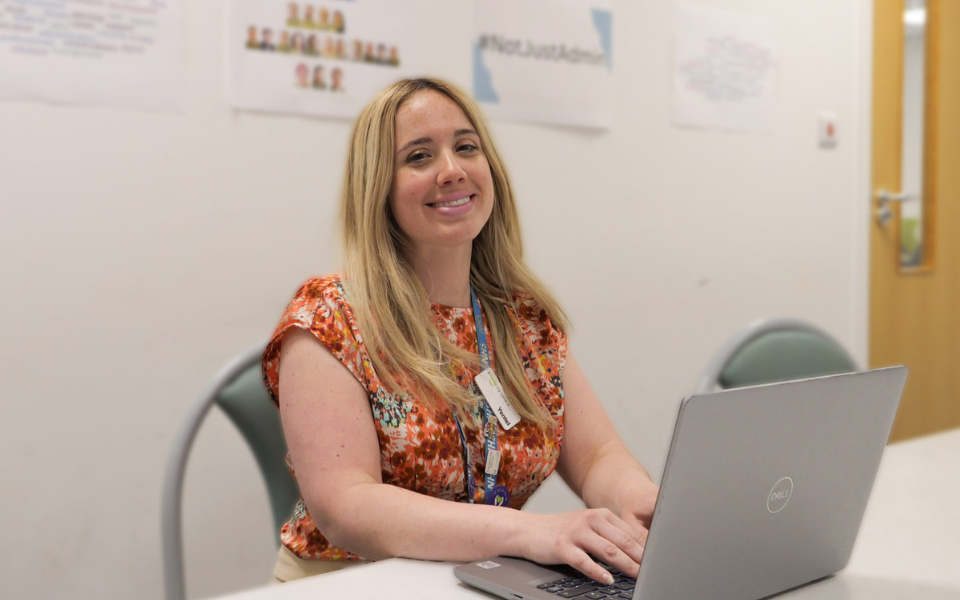
From Sports Coach to NHS Innovator: How Yentel Found Purpose at UHS
More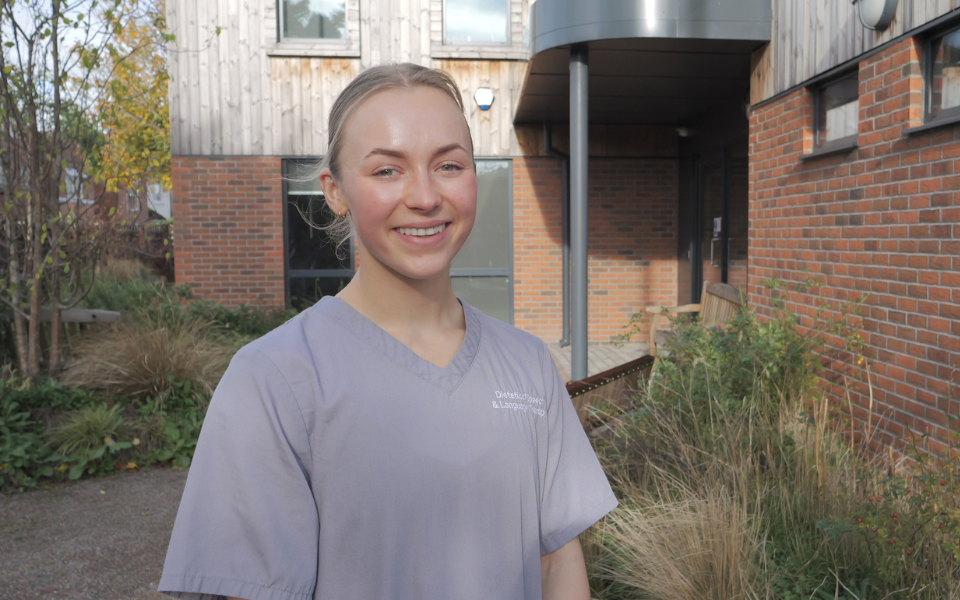
Supporting Newly Qualified Professionals: The Impact of Preceptorship at UHS – Goda’s Story
More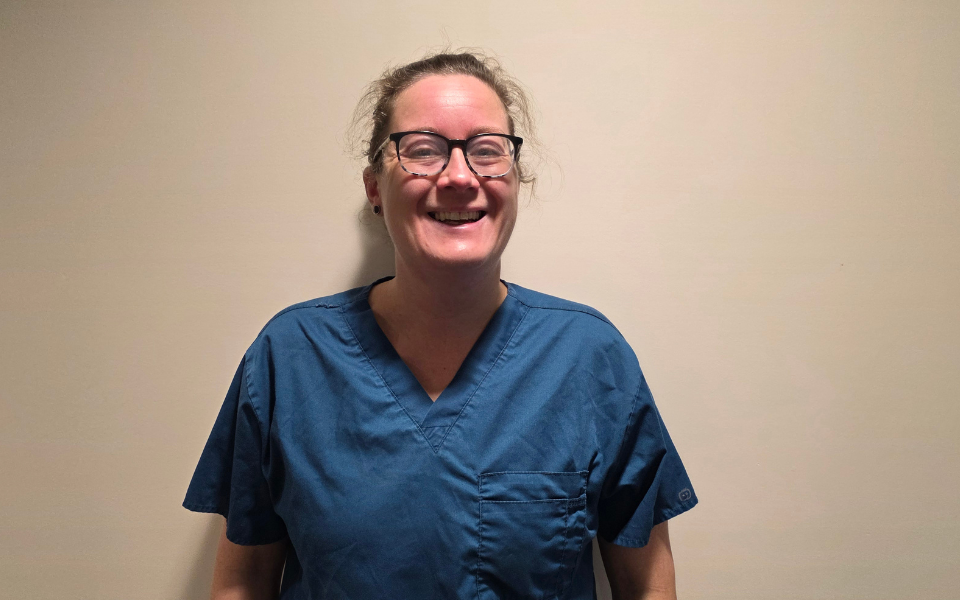
From Childhood Dream to NHS Specialist: Lizzi’s Journey in Pharmacy
More